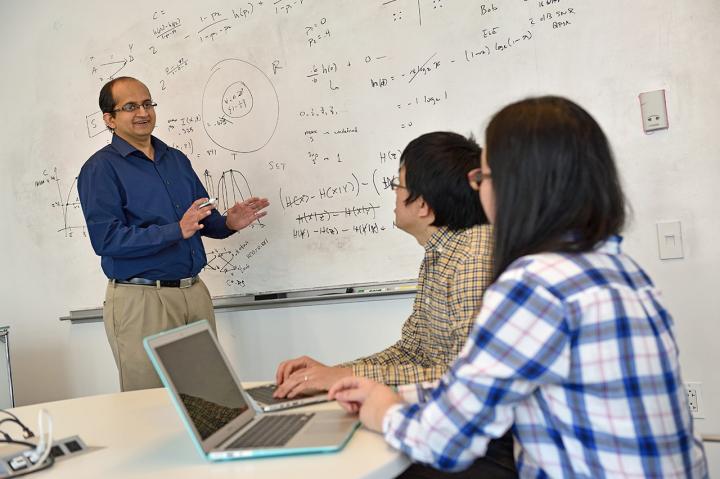
Credit: Virginia Tech
To help physicians decrease the number of deaths resulting from traumatic brain injuries, Chandan Reddy, associate professor in the Department of Computer Science and faculty at the Discovery Analytics Center, will use new machine learning techniques for computational models to predict short- and long-term outcomes, categorize traumatic brain injury patients, and provide interventions tailored to a specific patient and his or her injury. This four-year study is funded by a National Science Foundation grant in excess of $1 million.
Traumatic brain injury affects more than 10 million people worldwide and is a leading cause of death in the United States for children and adults under the age of 44.
“While nothing much can be done to change a primary brain injury, there is room to prevent further damage to the brain,” said Reddy. The overall goal of the project is to provide insights into what might happen next, like increased intracranial pressure and metabolic derangement, by using novel computational algorithms. This information can help physicians focus on detecting and preventing these kinds of secondary injuries.
One of the bigger challenges for physicians is that no two brain injuries are alike, even when the circumstances seem identical.
“Our research is especially important because it goes beyond general possibilities to the more specific ones,” Reddy said.
Data sources for the study will include inpatient bedside data, as well as remotely monitored telemedicine data, providing the ability to connect data at multiple levels for specific patient populations.
Reddy is working with Vignesh Subbian, assistant professor in the Department of Biomedical Engineering and the Department of Systems and Industrial Engineering at the University of Arizona. The study is also receiving some assistance from clinical experts from the University of Cincinnati and Emory University.
The tools developed through this research will help critical care physicians and clinicians provide the right care to each patient and better select patients for appropriate brain injury-related clinical trials.
“This work has a strong potential for application in broader contexts within the health care industry by helping families with decision-making about long-term care and by potentially informing ways to reduce overall healthcare and societal costs for this patient population as well,” Reddy said.
Through outreach and educational activities, the project will also promote awareness of computational methods and systems among graduate and undergraduate students, along with clinical trainees.
###
Media Contact
Lindsey Haugh
[email protected]
540-231-2476
Original Source
https:/




